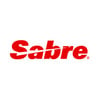Lessons from the Sharing Economy: What Hotel Managers Can Learn from Airbnb

A new generation of travel technology spearheaded by the sharing economy, and, more specifically, Airbnb is going beyond changing traveler behavior to disrupting an entire industry, which is why it was named by Inc. as the 2014 Company of the Year. What has propelled Airbnb’s success, however, isn’t merely that it has created a marketplace for property owners to offer one-of-a-kind personal accommodations to travelers. It’s that the company has altered travel behaviors with an experience that offers a clever use of technology, a better perceived value for travel dollars and an individualized travel experience for travelers. There’s no reason hotels can’t provide travelers the same level of convenience and many are leading the charge already. Here are three opportunities to learn from Airbnb’s model.
Use of Technology
As Fast Company reports, at the end of 2014, Airbnb revamped its mobile experience to reach the 20 percent of customers booking on a mobile device and to grow that number. A recent survey by online travel insurance company Allianz Global Assistance shows that 60 percent of millennials trust the sharing economy, which includes companies such as Airbnb, Uber and Lyft. That’s a huge generational shift in traveler behavior. To cater to this audience, hotels can leverage similar personal technologies used by Airbnb to cater to traveler desires and offer users a superior mobile experience.
For example, Hilton Worldwide unveiled a mobile app that allows its HHonors members to select their own rooms when booking, giving the traveler more power in the decision-making process. The app also allows users to digitally check-in, bypassing the front desk, and in 2016, the app will include a digital key that’ll give guests direct entry into their rooms and hotel amenities, like the gym or pool. The mobile technology provides the user with a seamless experience similar, from booking to arrival, and Hilton reports that 93 percent of app users are satisfied or extremely satisfied with the results.
Better Perceived Value for Travel Dollars
Business Insider notes that a recently study from Morgan Stanley shows that 55 percent who use Airbnb do so for the cheaper price. There is some debate about what’s actually cheaper, but a better way to compare is with value. Airbnb offers a variety of options depending on who happens to be offering accommodations, ranging from entire houses to single rooms, and the feeling that you are contributing to the sharing economy. The value there is in giving travelers options for exactly what they want in unique spaces, from people just like them. Conversely, the perception is that a large hotel chains offers a more standardized approach for travelers. But the value for guests at a hotel comes through consistency, security and reliability, things that Airbnb can’t necessarily promise across the board. Hotels can use their perceived value as distinctive experiences to bring themselves closer to the forefront and show that they offer the full package, in order to influence traveler behavior.
Hyatt Centric launched in 2015 as a new direction for the brand, offering a more eclectic boutique rooming experience. As Skift reports, Hyatt Centric, is a full-service hotel, but also a lifestyle brand offering special amenities. Hotels are pet-friendly and offer a corner lounge space, a health studio and a rooftop bar. Each hotel is centrally located in the city to offer travelers easy access to major destinations. Hyatt Centric is providing guests something special, so although it’s still a large hotel chain, the unique quality and the value of the stay gives travelers many of the things they seek from Airbnb.
Individualized Travel Experience
Millennials would rather spend their money on experiences than things, as Marketing Week notes, and Airbnb offers a chance to create an individual and personal experience for any traveler. A study conducted by Yahoo, in fact, showed that 78 percent of customers are looking for more personalization in their consumption. This isn’t about chocolates on pillows, but rather making an emotional connection with guests. One way hotels can build this is to create and maintain a human connection with customers through social media. A hotel that can provide a personal experience from start to finish will earn its guests’ loyalty.
Facebook, Twitter, Instagram and other social media channels provide a direct connection to travelers and offer immediate feedback. As Conde Nast Traveler reports, Loews Hotel Group now allows bookings using a hashtag on Twitter. Not only that, but Ad Week notes that they used real Instagram photos from visitors in a recent advertising campaign. The company is connecting with its customers in a real way to make them feel like valued members of the community, creating an authentic experience and earning that brand loyalty. Hotels that train staff to direct guests toward restaurants and other establishments not on the tourist circuit can use data from social media connections to make thoughtful, personalized recommendations throughout their travelers’ journeys.
